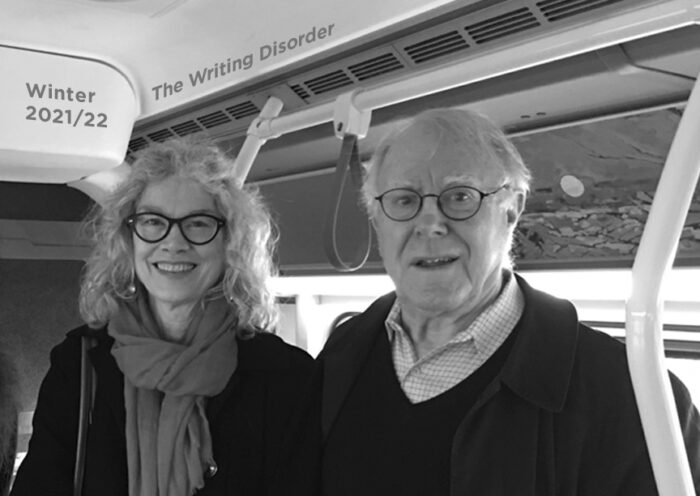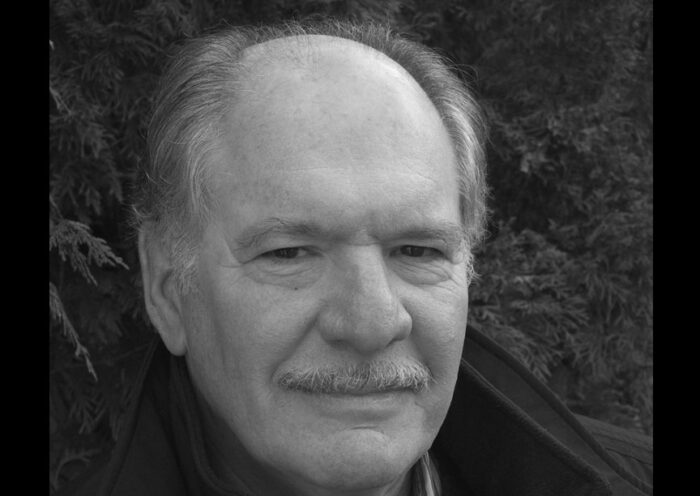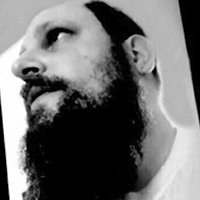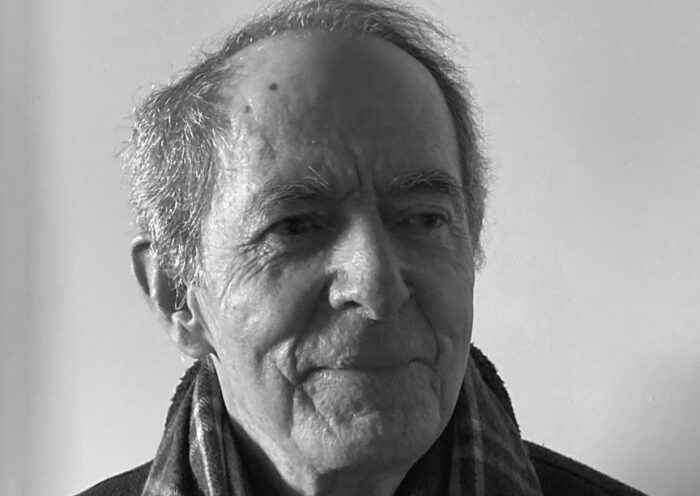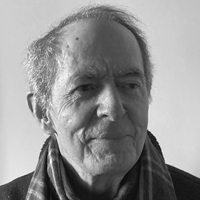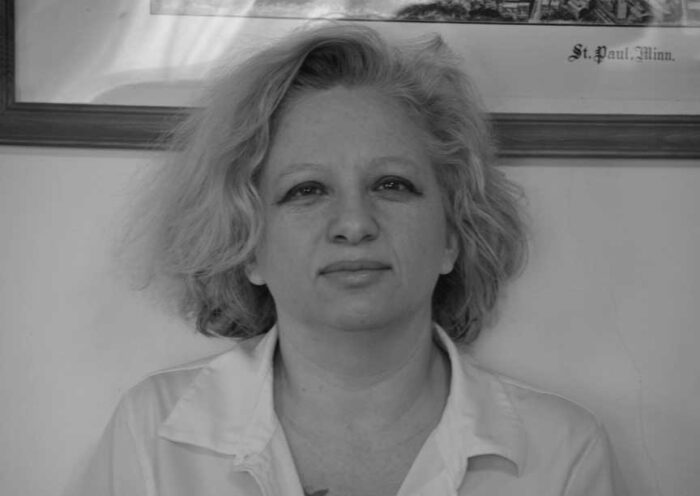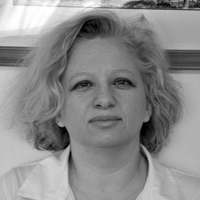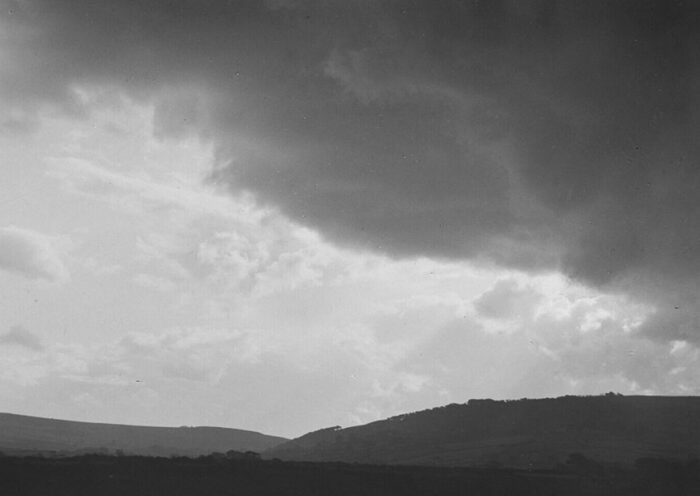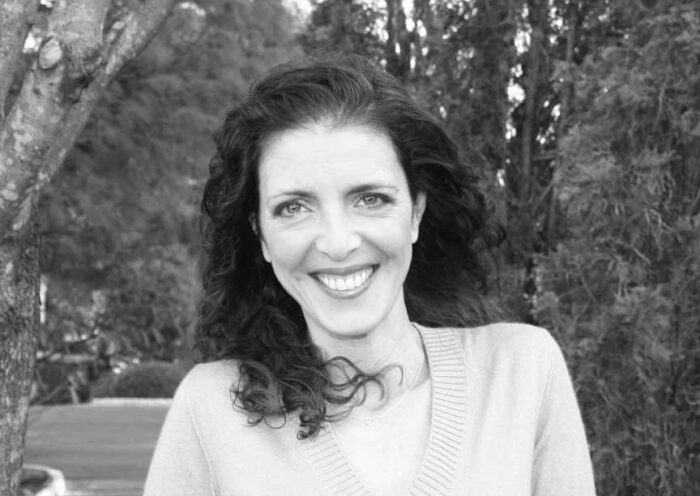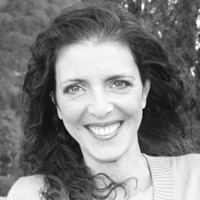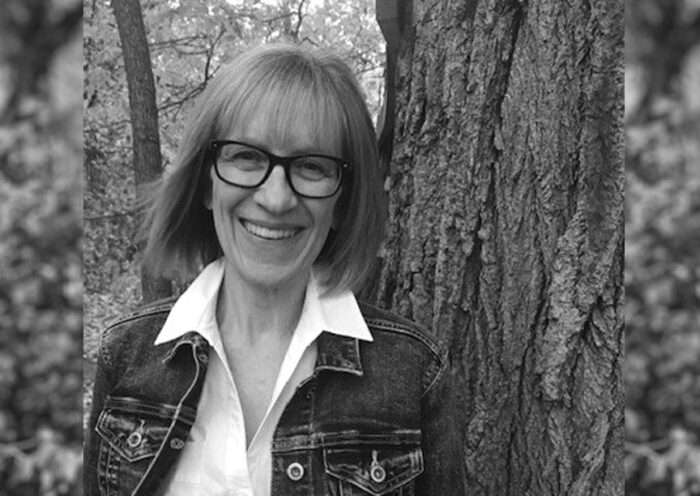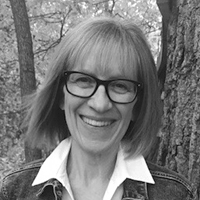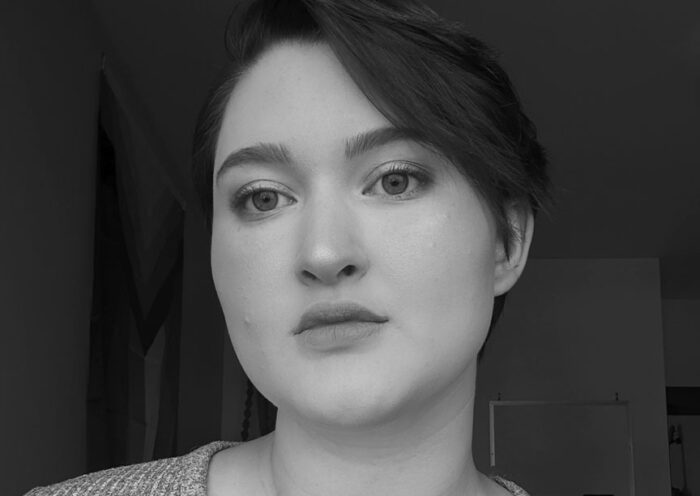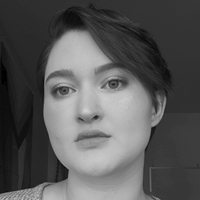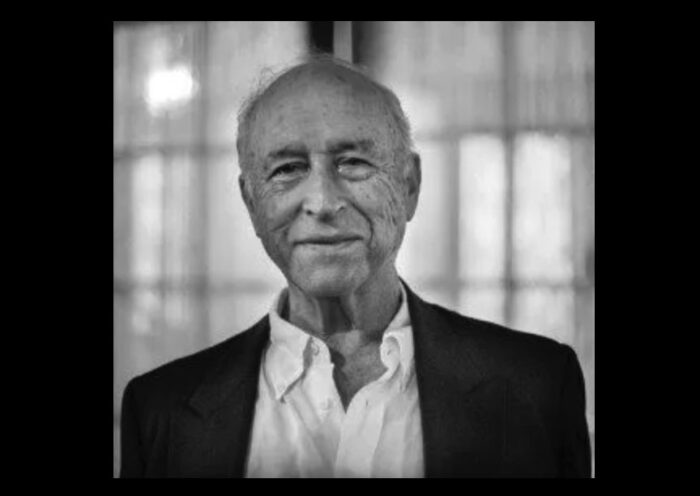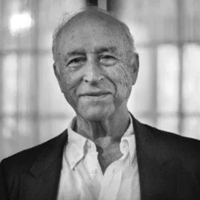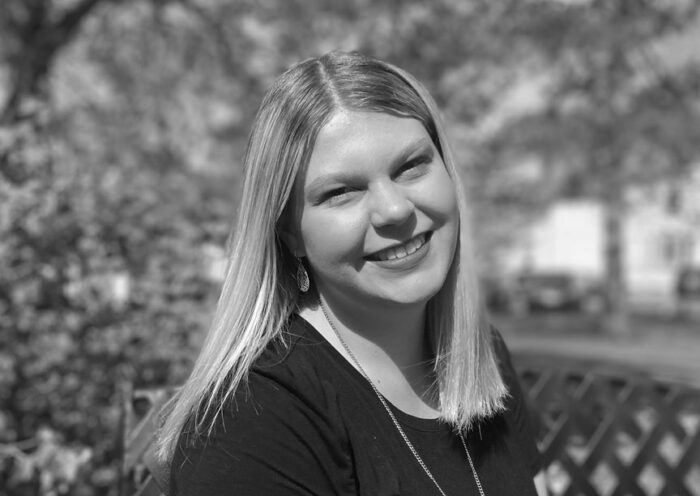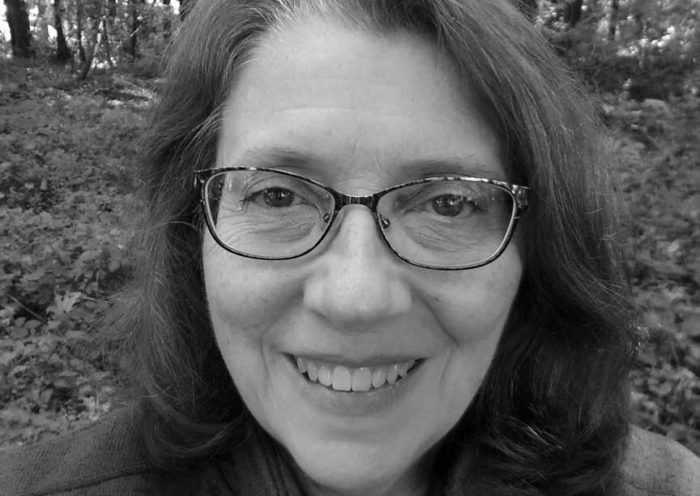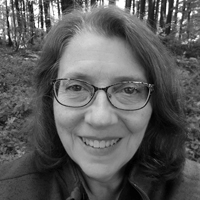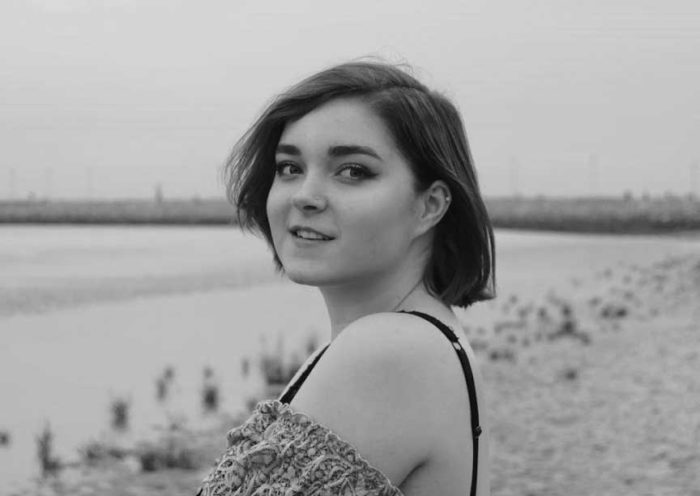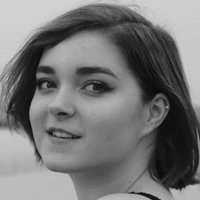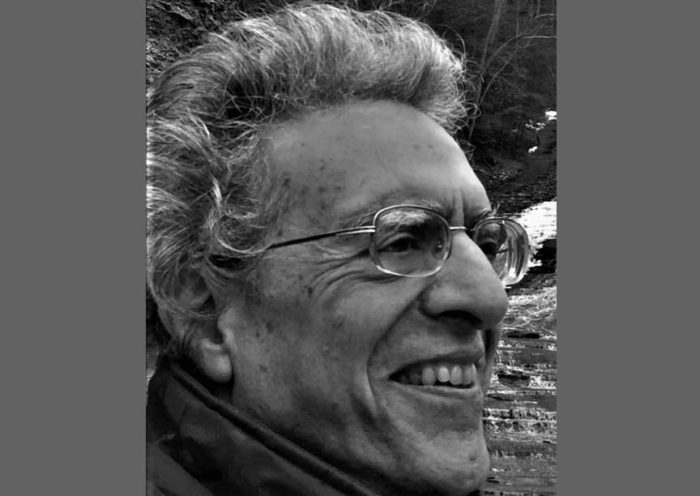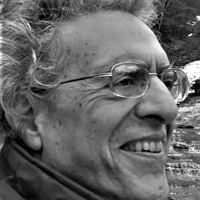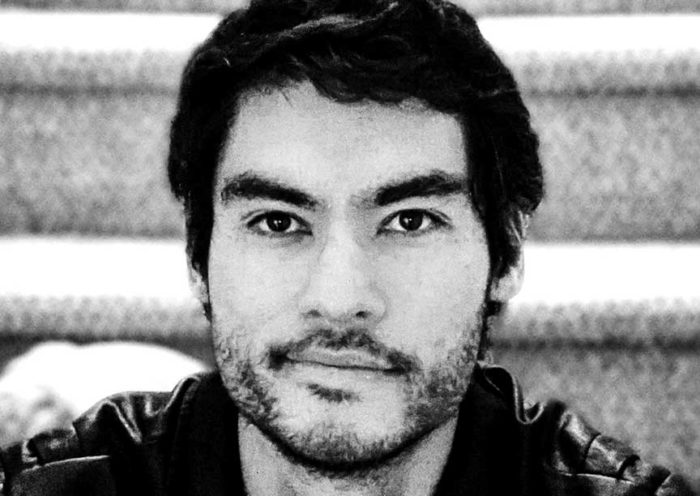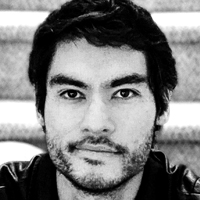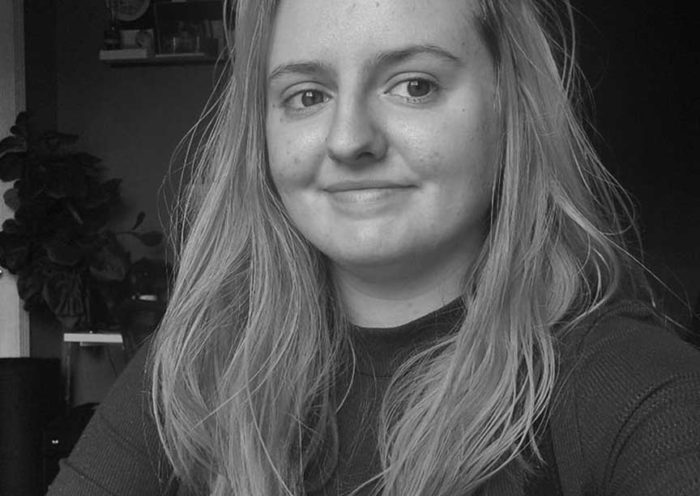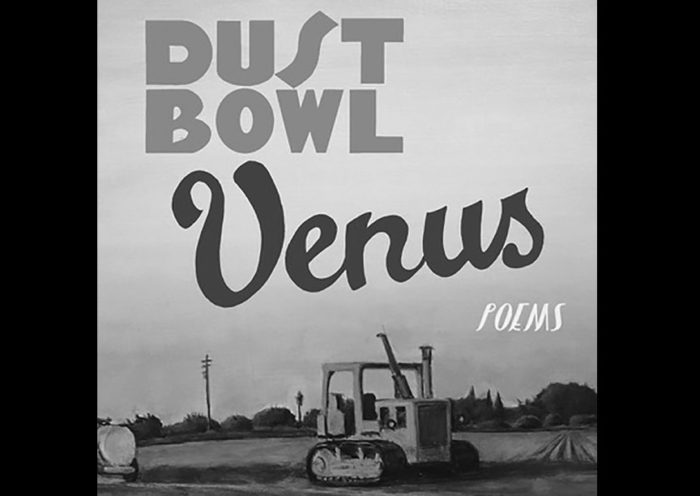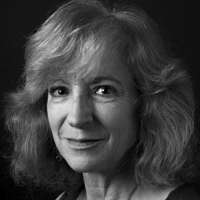Aesthetic Transmissions:
A Conversation with Robert Hass
By George Guida
Robert Hass, U.S. Poet Laureate Emeritus, Distinguished Professor in Poetry and Poetics at Cal-Berkeley, and long-time environmental activist, published his first collection of poems, Field Guide, in 1973, and his latest, Summer Snow, in 2020. In all he has published seven collections of original work, eight volumes of translation (seven of Czeslaw Milosz’s writing and one of Japanese Haiku), and four volumes of criticism. Hass has won a myriad of awards and prizes, from the Yale Younger Poets Award to the Pulitzer Prize, and for five decades has been a presence on the California literary scene.
George Guida: Did you understand from an early age that you wanted to be a writer?
Robert Hass: I didn’t know how you got there from here, whether it was a pipe dream or not, but that’s what I thought I wanted to do. When I graduated from college, I was writing poems, stories, essays. It was in graduate school, when I was 21, 22, 23 years old and had access to a library that had lots of literary magazines, where I really started reading contemporary poetry. I also took a couple of graduate classes with teachers who were very charismatic.
GG: Who were they?
RH: One of them was Ivor Winters, who was an incredible reactionary. I didn’t agree with anything he said. Actually, I didn’t know enough to agree or disagree, but I had never heard anyone talk so passionately about anything in my life as he talked about poetry. He was extremely contemptuous of his students. He’d say, “I’m an old man, but you’ve come to hear me, because I said, ‘Crane got sold the Brooklyn Bridge by Emerson and Yeats is an overrated poet and a fascist.’ Let me tell you this: Poetry is a serious art. People go into it with almost no apparatus to defend themselves against their feelings. My friend Heart Crane killed himself. My friend Ezra Pound ended up in an insane asylum. Coleridge was an addict and a depressive. I don’t have much use for you. I think you’re going to become sentimental old college professors, dabbling, to the destruction of your betters,” and he walked out the room. First day of class.
GG: This was at Stanford?
RH: Yes, in 1963. I thought, “Wow!” But he interested me, and, again, I was reading the literary magazines, which featured novelists of the period: Bellow, Roth, Updike, Cheever. And I read the poets and thought they were way more interesting.
GG: Who were those poets?
RH: Gary Snyder, for sure, for California writing. I was also reading Ed Dorn at that time, and William Stafford, because they were also Western writers. Then too I read the New York School and the Black Mountain School. The Donald Allen anthology, The New American Poetry, had just come out. It seemed like there was this incredible range of ways you could go about writing poetry and also of materials you could get to from writing it.
GG: At that point did you feel not only that you wanted to write poetry, but also that you wanted to be a part of that world?
RH: No, I didn’t imagine such a thing. The world that I imagined joining existed in the literary reviews—The Partisan Review, The Hudson Review, The Nation, The New Republic—but it wasn’t particularly about poetry. The world I was signing up for included James Agee writing about movies, Clement Greenburg writing about art, Delmore Schwartz writing about Kafka and existentialism. It was a world of ideas and art. It was thrilling to me.
I could see that among the poets at Stanford there was this little clique of people who were trying to write in a way that Winters would approve of. And I knew that there was a Beat scene, where something really interesting was going on, and that was also a community, I didn’t particularly think of it as a literary community. I thought of it as a countercultural—though we didn’t have that word then—community.
GG: What was your relationship with the countercultural community, other than seeing it from afar?
RH: In high school our older brothers and sisters, not mine but my friends’, were in North Beach. They were the people who were sort of the outsiders in high school and who listened to Jazz.
GG: Were you a city kid?
RH: No, I was a Marin County suburban kid. In the city we got snuck in with fake IDs to the Anxious Asp, to hear Jack Spicer read his poetry on Blabbermouth Night. At the time I didn’t know what I was seeing. It was only years later that I read about the event.
GG: So you probably ran across a lot of the figures of the era without knowing who they were?
RH: I knew where City Lights was, and I recognized who Ferlinghetti was. Another thing that would give me a sense of community were the journals in the basement of City Lights.
GG: The mimeographed magazines?
RH: Yes. I remember that Ferlinghetti published a magazine called The Journal for the Protection of All Being. It came out once a year for a few years. There was an essay in it by someone who, at the time, I’d never heard of, Gary Snyder, called “Buddhist Anarchism.” And I thought, “I’m not sure what Buddhism is and I’m not sure I know what anarchism is,” so I started reading. And then there was the symphony and the kids in my high school who were interested in classical music, which I knew nothing about. Wednesday night was a student night in the balcony and I would see these older students, now college kids, wearing black jeans and black turtlenecks, alongside all the fancy folk who had symphony tickets and were dressed up.
GG: Did you come from a family of intellectuals?
RH: No. My parents were socially a bit unusual. They were from the Depression Era. Their parents had been to college, but they didn’t go. They were plenty smart, but they were just raising kids. My dad was a tax attorney for an insurance company. They read the Saturday Evening Post and subscribed to the book of the Month Club.
GG: But you had this younger generation around you and your grandparents.
RH: My grandmother would recite poetry
GG: What would she recite?
RH: “Godfrey Gustavus Gore / would you please shut the door? / I’ve told you again / I’ve told you before.” But she could also recite some Joris-Karl Huysman and the poets a literate college girl of her generation would have known.
GG: So your entrée was mostly the older kids and what you read when you got to college.
RH: Also the Donald Allen anthology gave me a sense that there were poetry communities and a poetry world. At that point I was trying to write stories and poems both. I was involved in activism on civil rights and against the war. I started a weekly newspaper with friends, called Resistance. The first issue we called Commitment: A Journal of the Asylum. It reflected the existentialist ideal and our political commitment. The more radical people in our group wanted a more militant sounding name, so we changed it to Resistance. A lot of what we did was research into military contracts. The Stanford Research Institute was helping to prosecute the Vietnam War.
GG: I know when your first book appeared, and I have a timeline of when you start publishing your work, but when did you start perceiving yourself primarily as a poet.
RH: Sometime after 1967. At Stanford there were a group of people–partly around Ivor Winters–and each of them was going around writing poetry, saying, “I’m a poet.” Robert Pinsky was one of them. James McMichael was another. John Mathias and Kent Fields, who was Winter’s replacement. I I thought they were conservative in their practice. Then I met Mitch Goodman, who was the husband of Denise Levertov and an anti-war activist. He was a lecturer for a couple of years. He saw that I moved around Wallace Stegner, and he thought, “Here’s someone who isn’t a Winters person.” He would say to me, “What poets would you like to hear? We’re trying to invite some that Ivor”—”Arthur,” they called him—”would disapprove of.” I said I’d love to hear Denise Levertov and Frank O’Hara.
The last couple of years at Stanford I started to write more poems. When I thought of a line, I couldn’t wait to get home and write it down. I had little kids, so I would go home and take care of the kids and take out my notebook. And I saw once that a copy of The Hudson Review had the last fragments of Ezra Pound’s Cantos, and they said there would be more in another issue. And I thought, wouldn’t it be cool to be published in the same magazine as Ezra Pound, so I sent poems to The Hudson Review, and they took two of them. To me that was an incredibly big deal, and I had absolutely no one to tell it to except my then-wife, and she said, “That’s nice.”
Then I got my first job at SUNY-Buffalo. I went there because it was teeming with poets, though I didn’t quite understand how much. The summer I arrived, I saw this whole rich—I wouldn’t say community. “Network” is certainly a useful word for this purpose. That is, many different groups interacting, and playing out their rivalries. I thought I was going to Partisan Review heaven. Leslie Fiedler had taught there. Joe Barber. Michelle Foucault was on the faculty. Susan Sontag was there for the summer. My second year there, Merce Cunningham and John Cage had a joint appointment. Robert Creeley was on the faculty. Charles Olson was on the faculty, and he’d hired a lot of Black Mountaineers to teach in the night school. There was a very intense group around Creely and Olson. There was an intense group around John Logan, and around Irving Feldman. The younger generation of poets from the New York School, Ted Berrigan and Ron Padgett, and Tom Clark, were very active. That was when I came to see that it was a scene. By then I was trying to focus on writing poetry. I had done my academic work in a completely other area, and I didn’t even tell them I wrote poetry when I was hired at Buffalo.
GG: Your degree is in?
RH: A Ph.D. in comp lit and the novel. I’d done a dissertation on Dickens and Doestoevsky and Freud and capitalism and blah, blah, blah, blah. And I was still thinking that stuff through, because I had finished the dissertation when I was there, but I had lost interest in it. I was really interested in writing poems.
GG: And you entered into this world of poetry silos at Buffalo. These were not overlapping circles of poets. Were they camps?
RH: It’s difficult to describe.Here’s an idea: I had mixed feelings about the social position of Elizabeth Bishop. That was a period when Howard Moss was Poetry Editor of The New Yorker. Bishop’s poems appeared there regularly, and they seemed, at that wild and wooly moment, very well-behaved—but subtle and musically kind of amazing. Creeley would ask me, “What poets are you reading?” and I happened to say Bishop, and he said, “Oh, dear.” I thought, you may not like her, you may think she’s conservative, but how could anybody who writes poetry not think she has an amazing ear. Hearing Creeley read, you understood his poetics. Logan read in this rich, orotund way these off-rhymed Lowell-ish poems. Irving Feldman was outside of poetry scenes and contemptuous of them. He was writing out of the Jewish Eastern European experience.
GG: When and where would you hear these people read?
RH: Almost every night. In coffee houses, on campus, all over the place. I had gone from Stanford, where you just didn’t hear much poetry at all, and then suddenly there were readings everywhere. The summer I arrived, there was a reading from summer visitors: the Irish poet Austin Clarke and William Empson. Empson was there for 2 summers, and I was put in charge of taking care of him. He was a serious drunk. Paul Carroll, who was the editor of Big Table Books. Michael Rumaker, who was a fiction writer and poet from Black Mountain. There were tons of poets reading, and there were overlapping communities of interests. The Olson people were either, “You’re cool or you’re not one of us.” Logan’s circle of friends included A. R. Ammons and James Wright, Robert Bly, Galway Kinnell, Isabelle Gardner, Adrienne Rich and W. S. Merwyn. They were a group of poets who were expressive, while the avant garde poets were more interested in analytic technique issues. The bars were full of poets.
When Creeley was going on leave, he said, “Why don’t you try teaching my contemporary poetry class while I’m gone?” I was teaching these courses on the novel. I said, “What I’d really like to do is take the difference between your salary and my salary and bring in a bunch of poets. I can teach the poet’s work on Tuesday, have them read on Wednesday, and they could teach the class on Thursday.”
GG: That sounds like a perfect world.
RH: Sure. So I invited Alan Ginsberg, who said he would only come if I invited Gregory Corso. Years later I stood on Corso’s grave in Paris and said, “Gregory, you owe me 400 dollars.” Anyway, Denise Levertov, Adrienne Rich, Robert Bly, William Merwyn, Ed Dorn, Ginsberg and Corso taught the course. Corso gave a talk on the origins of cave drawings of people getting stoned on morning glory seeds. I was suddenly submerged in this world. And there were many other things going on that were interesting. Ray Federman was part of a group of people, along with John Hawks and Jon Barth, the new fictioneers.
GG: It may warm your heart to know that Buffalo still has a vibrant literary community on many levels, including the local community level, but the scene you’re describing is remarkable.
RH: There were readings at bars with local poets. I remember one guy with a Greek surname, from Buffalo, who read a long poem that went on and on about the Marriage of Jacqueline Kennedy and Aristotle Onassis. He didn’t quite get booed off stage, but after a while people said they’d really heard enough. He came to the bar, and I said, “That was a long poem,” and he said, “Onassis is going to be so pissed off.” Delusions of grandeur.
GG: The distinctions between academic poets and community poets have, axiomatically, eroded over the last twenty or so years. What was your experience negotiating those two milieux?
RH: I was aware of the distinction early on, and my impulse was not to buy into it. The way the allegiance thing worked was that if you were in the Creeley camp you had to think Joel Oppenheimer was a great poet and Galway Kinnell was a terrible poet. I would think, “Joel is a charming guy and he’s kind of writing like Creeley. He’s very funny, but his poetry isn’t very deep.” At the time Galway Kinnell was writing The Book of Nightmares, trying to write Rilkean poetry in America. The place asked you to choose camps, and I didn’t want to choose. I also saw that, in ways that seemed to me not completely healthy, they formed affiliation gangs. Each one drew on the energy of the star poet in the center of that group. It’s perfectly natural it would happen. It’s the way aesthetic and spiritual transmissions get made.
GG: How do you mean?
RH: Around that time, I was in New York visiting a friend. She was taking acting class. We went by to pick her up and we were standing outside the classroom where Uta Hagen–who had been in Lee Strasburg’s class and had done the first blind reading of Streetcar Named Desire with Marlon Brando–was teaching this group of students And it raised the hair on the back of my neck, thinking about the way artistic transmissions happened. It’s very much like the way transmission happens in Buddhist communities: You find a master, you learn from the master, you eventually become a master yourself. It’s through that semi-erotic attachment, complicated by power relations. I loved the work of several of those poets, but I didn’t want to sign up particularly.
GG: So at some point you left this community in Buffalo?
RH: I would come back here in the summertime, and I would see the silos in San Francisco.
GG: Do you agree with that assessment, that it’s a siloed city?
RH: Yes and no. There’s leakage all over the place. I came back in 1971. I published my first book in 1973. At that point what I was interested in was poetry. I also saw here versions of what I’d seen in Buffalo: this group, that group. There were the San Francisco State poets. Berkeley was pretty dead, actually, in terms of a poetry scene, but here were terrific poets. Thom Gunn was here, but he was interested in the Castro and that world and not interested in a poetry scene. Ishmael Reed was here. Pinsky was teaching in the English Department. Josephine Miles was at the edge of retirement. So Berkeley had a rich tradition of growing poets–Robert Duncan and Jack Spicer—so there was a lot here, but the graduate program was not a creative writing program. After I got a book published, I got invited to read in Berkeley, and someone said—maybe it was Jack Foley—”Good luck. It’s like beating a very ancient carpet.” It didn’t feel welcoming and alive.
GG: San Francisco did?
RH: San Francisco did.
GG: When you say San Francisco, are you talking about City Lights or other venues?
RH: I’m trying to remember. I was raising small children, so I didn’t have much of a social life. But I would get out every once and a while to poetry readings at the San Francisco Poetry Center. But from here that’s a long schlep over to San Francisco State. Intersection was the place that tried to make an art community in the city at that time, and that’s where a lot of the cool readings were. It’s gone now, but I think for 20 years it was a venue. I forget what year New College began. The language poets as a group in the 1980s gave a series of talks at 80 Langston St, which is a little alley between Market and Mission. And that became a kind of downtown place for all non-academic-centered ideas, particularly linguistics and critical theory and language poetry. That was the cool scene, and they were interested in their different kinds of community. Folks like Ron Silliman. They would read for a couple of hours outside BART [Bay Area Rapid Transit] stations. At the time Silliman was helping to edit The Tenderloin Times, which was a newspaper for street people to sell, in order to have something to do.
GG: Now the reading that happens at BART station is an impromptu spoken word event where they draw a chalk circle at the 16th and Mission Station, and there’s no order. It’s just jump into the circle, jump out of their circle.
RH: The language poets’ writing was extremely heady, but Silliman would tap his feet to the rhythm as he read. So it was poetry that denied having a body, even though it was totally bodily in the way that it was performed. There were a lot of people working in different ways. There was still a kind of Beat scene, though Gary Snyder was gone and Ginsberg was long gone. Jack Hirschman and Neeli Cherkovski were there, among others. There was a group of poets around Robert Duncan at San Francisco State. Stan Rice, the husband of Anne Rice, was a hot young poet in San Francisco, before they moved to New Orleans. Jack Gilbert and his partner Linda Gregg formed a kind of group.
GG: I want to go back to your idea of community in a more platonic sense, regarding poetry and being laureate. What’s your perception of the situation now in San Francisco? Of the community’s poets? Of poetry here generally? The power of it, relative, cultural?
RH: I don’t feel at all on top of what’s happening here, but one of the things that’s definitely happened is this: When I started reading poetry in 1963, ’64, ’65, I could read every book of poems published in America in a given year, including the mimeographed stuff. There were maybe 17 books of poems published a year. Last year there were 1400 books of poems published.
GG: Those are just books by the presses acknowledged as national presses.
RH: There was no thought that you could make a career writing poetry. When I was graduating college there were two creative writing graduate programs: Iowa and Stanford. I was in Stanford, and I wasn’t in the creative writing program.
GG: But you were aware that the MFA existed.
RH: I wasn’t actually, I don’t remember being aware of it as a choice. I thought at that point, “I want to be a writer.” I’d already gotten married, I’d worked 2 summers doing research at a bank, and it made it perfectly clear to me that I didn’t want to put on a suit and go to an office from 8 to 5. And it seems that’s what you do when you graduate from law school. I went to graduate school for a PhD in the same spirit in which I might have decided on law school. There weren’t models of poets teaching in the university, particularly, yet. What changed things was by the time I was back here in 1971, there were creative writing teachers at every college, so there came to be MFA programs, which exponentially increased the number of people writing poetry, and the number of people publishing poetry, and the number of communities usually organized around the aesthetic of the charismatic teachers in each program. That was also true of New York at the time.
GG: Those developments have had enormous implications in a couple of ways. The first of which is for the state of poetry. Do you have strong opinions about those implications?
RH: The writers of the older generations were extremely suspicious of the academy. There’s a poem of Theodore Roethke’s era about Roethke raging in the cage of the university. Kenneth Koch wrote in “Fresh Air,” that poets were “trembling in the universities and publishing houses,” “bathing the library steps with their spit.” They feared the university as a trap.
The greatest period in the history of lyric poetry was the Tang Dynasty in China, which produced, over 100 years, five or six of the greatest poets who have ever written in any language, and they all had to take exams in poetry in order to get the jobs as secretaries, in the waterworks, and in the other administrative jobs for Confucians. The evidence is that the more a culture encourages poetry, the better the poetry it produces.
GG: You would say generally that there’s more good poetry being written now than at any point in American history?
RH: We don’t know. Great poetry is mysterious. Walt Whitman and Emily Dickinson are. On one hand the history of American poetry is the original work came from people who were on some level profoundly loners. I mention the Tang example as a counter argument to the idea that there’s a kind of static uniformity.
GG: Not a static uniformity, but let’s say we have a large number of programs producing poets who then become solitary poets, and they’re all over the place, and you can’t throw a rock without hitting a poet in the United States.
Robert: I think that’s a really important thing. Look at early 20th-century American literature. In 1915, roughly when Wallace Stevens, Robert Frost and Pound were getting started, only 16 percent of Americans graduated from high school.
GG: It makes me think of poetry scrapbooking in the early 20th Century. It was a time when many people had scrapbooks of poems, but not everyone was writing poems. Now not too many are keeping scrapbooks, but everybody’s writing poetry.
RH: It was middle-class people who were keeping scrapbooks. In Sherwood Anderson’s stories of small-town life, people were going crazy and running through the streets naked in the middle of the night, in these oppressive environments. Now every disturbed and upset person in the country can find their way to some community college where somebody who loves poetry or painting or musical composition is teaching them. What’s not good about that?
GG: There is no downside to that.
RH: But this was the point I was coming around to, what’s been interesting about the Bay Area in the last 20 years. The creative writing program at Dominican University at San Rafael, the old hallowed one in San Francisco State, the College of Arts and Crafts, St. Mary’s, Mills College, they’ve each spilled into their surrounding communities. The graduates from my wife’s program from Saint Mary’s now have two or three different weekend poetry reading programs. There’s an audience of 75 to 100 people every couple of Friday nights. There are salons. And the groups intermingle and overlap–some, and some they don’t. The young poets want to take their art out into the community.
GG: That’s the experience that I’ve had, that just as you can’t throw a rock without hitting a poet, you can’t throw a rock without hitting a poetry reading, Everywhere, every night of the week almost.
RH: You’ve got people saying that Americans don’t like poetry.
GG: That’s hard to believe.
RH: There were maybe 5 poets working in every University in America in 1948. Now every single college, university and community college in the country has two poets and two fiction writers teaching creative writing.
GG: It’s an amazing industry.
RH: And somebody’s paying for it, tax money mostly. We have on this campus our monthly poetry reading series and a biweekly one. Meanwhile there’s the Starry Plough and Studio One, off-campus venues
GG: So this is progress? Socially?
RH: Absolutely.
GG: The effect on society is positive, because…?
RH: It’s hard to say exactly. Everyone loves to quote William Carlos Williams: “men die miserably every day / for lack / of what is found [in poems].” Jeremy Nobel, a doctor at Harvard, started a non-profit called The Unlonely Project. He started working with veterans, writing and reading poetry. There are things like that going on. Lyn Hejinian has said that poetry coteries, her word, are necessary, because young poets need support and nurturing to find their little groups.
GG: I’ve discovered that poets leave coteries.
RH: People have talked about that in different ways. Somebody asked Robert Pinsky about being a Jewish poet and he said, “It’s the neighborhood I come from.” Some people stay there forever, or at least they become professionally associated as a spokesperson for that neighborhood of poetry.
Jane Jacobs, who is great on the subject of community, said, “New ideas come from old buildings.” Most new social initiatives of all kinds have to do with creating community. Another background of all of this is the distinction between community and network, and the networks that capitalism, a market economy, creates; and the kind of community good that has become the rhetoric of poetry and of the people who try to raise money to promote the arts as a way of promoting community.
GG: There’s a network of practicing poets in the academy. I have poet friends who know your wife professionally. I didn’t know that until two days ago when one of my friends mentioned it. There’s a reason they meet at the AWP conference every year. Then there are many communities that I’ve encountered in which people have absolutely no interest in networking, less than zero. They don’t care to get out beyond their specific communities. And I would say that’s the majority of people who write poetry. Were you aware of this when you were Poet Laureate? Did it feel like part of the task to encourage any particular sort of community?
RH: I had been traveling around the country, giving readings, for maybe twenty years by that time. I knew that in Yakima, Washington, you might think you’re going to get four people at a reading and the place is full, because somebody happened to have taught your poetry in their class, and you go to another place and nobody shows up. From that perspective, a poetry community feels like a pond where the temperature keeps changing.
As Poet Laureate I was interested in creating readers for poetry, figuring out how to do that, and using the position to confront fundamental issues of literacy. Because I was also the first person from the West of the Mississippi to have this job, I thought I should do something related to the environment. And they said, “We have $30,000 for you, to have some kind of conference.” Newt Gingrich’s Republican Congress had just been elected. For the first time in fifty years, a Republican was in charge of financing for the Library of Congress. So I said, “I’d like to get the environmental writers together, because I hear that the lobbyists are sitting in the offices of these new freshmen Congressmen, rewriting the environmental legislation.” I went back the next week and they said, “We thought we had money available for a conference, but turns out we’re not going to this year. Sorry”.
GG: The Contract with America.
RH: So I said to them, “If raise the money, could I go ahead and do it ?” And they said, “Sure, if you raise the money.” I had never tried to raise money for anything. I called around to some people. Very quickly somebody called me, a guy named Charlie Hopper, who was the director of a foundation that used the Sara Lee Cheesecake family money. He said, “I hear you’re thinking of doing an environmental program at the Library of Congress, and I think that’s wonderful, and maybe we can give you some help”. I said, “I could use about $30,000.” He said, “How about 100,000?” I went to the Center for the Book, at the Library of Congress. It’s a place that produces those maps of writers that you see in schoolrooms. I thought “Bingo! If you just add environmental responsibility and the natural history writing tradition to these maps, you’ve got exactly the community poetry is interested in.”.
GG: But this could apply to other issues as well? It’s just a sort of paying attention that poetry demands.
RH: When Rita Dove had the job, she organized the first literary conference on the great diaspora, on what took black people out of the Jim Crow South and into the cities of the North, and created the art scenes that happened in places like New York and Chicago. It was about literature creating communities for people.
GG: As a white male Poet Laureate, were you very conscious of the imperative to diversify perspectives in and on poetry? We’re to the point now where many of the most celebrated books are by poets of color, gay poets of color, immigrant poets.
RH: I was certainly aware, because I grew up with the civil rights movement, so I understood very well the need for it, especially sitting in the Library of Congress where almost all of the employees were black and all the appointed staff were white. One day I went to work, there were an older guy and a younger guy, like they were in an August Wilson one-act, sitting on a bench outside the entry. The young kid said to the old guy, with tears in his eyes, “I don’t have to take this shit anymore.” And the old guy said, “Son, you do.”
I’d also started this environmental poetry program for children, and the first place we did it was in the Anacostia district in D. C.. I met a guy, who was a descendant of Daniel Boone, who created the Friends of the Anacostia River Society. Washington has a dual-store sewage system, like most American cities. Every time there’s a heavy rainfall in D. C. the sewers from the Federal Triangle overflow into the Anacostia River, and all the Congressional shit flows through the poorest neighborhood in the city. How’s that for a definition of community? So I was discovering a lot of stuff from doing that and feeling like bringing poetry into these communities that were concerned with the environment and with social justice was part of the work to be done.
GG: Is this something inherent in poetry which lends it to alliance with social justice movements? Or is that something that’s just happened?
RH: Well, that’s an interesting question. What do you think?
GG: The thing that occurs to me when I think of this possibility is that I have a friend who’s a a good poet, a professor, and a very conservative Christian. He rages about having to be a poet in an academic environment defined by the constant imperative for social justice. He thinks it’s all a bunch of…
RH: Bullshit.
GG: Right. To my mind poetry usually attracts people who are concerned with social justice, because it’s the people who reflect the most who are most concerned with social justice. I don’t know if that’s right, but that’s what it feels like.
RH: You can date the imperative for social justice of the kind that we have now, poetry arts in general, from Romanticism and the French Revolution. Was Shakespeare concerned with social justice when he was writing the Sonnets? I don’t think so. Were the great 17th-century religious poets concerned with social justice?
GG: I would think about Blake, but I would say poets of those times were concerned more with the awareness of social injustice, not so much with campaigning for social justice.
RH: So Blake is the turning point.
GG: The Industrial Revolution.
RH: Somebody said that The Vicar of Wakefield is the first novel in which someone mistreats a child. And it’s the same period when poets started writing poems about wounded animals, like Robert Burns’s “To a Mouse.” The moment of the birth of modern liberalism comes from romanticism and poetry of that period. Resistance to power has been an element of the arts since the end of the eighteenth century.
GG: At the risk of sounding ill-informed, when I think about the Modernists, I don’t think particularly that that’s a group of poets concerned with social justice. Eliot, Pound, even Stevens.
RH: In the Depression they turned themselves to that question, each of their own way.
GG: So you look at the poet of The Four Quartets as a different poet from the poet of The Wasteland.
RH: At the same time, Langston Hughes was writing, Carl Sandburg was writing. In his way Stevens, in “The Man on the Dump,” tried, from his lofty heights, to address the Depression.
I have a friend who was reading applications in the graduate program he’s in, with a couple of younger poets on the faculty. One of the applicants said that she particularly wanted to come to this program, because she really wanted to work on issues of gender injustice and inequality, and this older poet said, “This is not a program in gender and social inequality. It’s a program in poetry.” A younger poet on faculty went to the chair of the department and made a formal complaint against this poet for making a racist remark. Somebody else, somebody teaching at Harvard, told me that he was teaching Donne’s “Batter my heart, three-person’d God.” After class a woman came to him and said that, as a survivor of sexual abuse, she was very disturbed by how casually he had used the term “ravished.”
GG: I’ve heard people put this more vulgarly: that having the correct pronoun is not the same as having someone grab you.
RH: So right now that’s the moment. On the other question, of the spread of graduate programs, which has caused people who want work and who love this art to want it in more communities, I remember when Dana Gioia published the book Can Poetry Matter? Czeslaw Milosz was enraged by that title. He said, “This assumes John Carson matters.” He meant Johnny Carson and late night t. v. It was evident to him, who had seen whole generations carted off to the gas chamber, that the conversation that went on in poetry was a matter of life and death. That way of thinking also belonged to a time when it was only an educated aristocracy who read and wrote poetry.
GG: I did take issue with Gioia’s argument. It seemed to me that he was talking particularly about a subject of his next book, about San Francisco and the way the publishing industry here had disappeared.
RH: There’s another aspect to that discussion. First of all it’s only from the middle of the 19th Century that most people could read. And right around the time of Whitman’s debut there began to be cheap enough printing to make books.
GG: Compulsory education began in 1840.
RH: 1840. Unless you were black, and then you could still get killed for trying to read. During that period from about 1840 to 1920, the main source of information was newspapers and magazines, so people who work in the print media created celebrity. And what happened, beginning with radio and then with t. v., is that celebrities became people admired by the producers of news and entertainment. So the Modernists, who disliked popular poetry, which people had been working very hard to use in the spirit we’re talking about, for creating a community, were basically biting the hand that fed them just as it was being withdrawn. And they remained stars, so they–you know, Eliot and Pound, would show up in Bob Dylan’s songs. That was the end of that particular kind of celebrity for writers.
GG: I often look back on the 1980s, when I was in undergraduate, as the last gasp of the New York literary old line. I interned at The Hudson Review and The Paris Review then, and that was the last gasp of seeing literary types go to Elaine’s or seeing John Updike get into an elevator at a swank party. That sort of literary celebrity doesn’t appear to exist much anymore. And that’s not all bad. I can come here and interview you. You were Poet Laureate. And I was able to ask another Poet Laureate, Billy Collins, to visit with my class. And I’m just some guy at the City University of New York. It’s not the same sort of exclusivity.
RH: I have no clear picture of the way things are now. It’s clear that the Internet is changing the whole discussion about community and how you make it. Virtual poetry communities are everywhere and nowhere. I think the rise of identity politics is a subject for poetry, is connected to everywhere and nowhere. You have to talk about this carefully, because it has a blood and soil element. It was complicated for me, figuring out how to do environmental poetry without talking about how important attachment to community is, at the same time that cosmopolitanism is the solution to small-town prejudice. You encourage Nebraskans to be Nebraskans by taking care of their environment and stop polluting their rivers.
GG: I talked to two people this week who have said outright or implied that when push comes to shove people retreat to their tribes. Last night someone very close to my age who was running a poetry slam said basically as much. Berkeley is for Caucasians. Oakland is for brown people, as she put it. And last night at the Oakland Slam, there was as diverse a mix of people as I’ve seen, and I come from a place that was diverse and have taught for 30 years at a university that is.
RH: Fifty-five percent of undergraduates from Berkeley are not European-American in one way or another, and twenty percent of them don’t speak English as their first language at all.
GG: The definitions of diversity are interesting too, because back at my college in Brooklyn, the students speak one hundred and fifteen different languages. If there’s a dominant group, maybe it’s Latino students, but even they are from various places. I’m staying by Lake Merced in San Francisco, in an area that is predominantly Chinese American, almost entirely. Is that diversity?
RH: In my growing up, San Francisco was very much the patchwork model.
GG: Yes, and that’s New York as well, in terms of ethnic neighborhoods. I perceive that this generation of students is different. They really are blending together in a way that previous generations have only lip paid service to. But there still seem to be lingering doubts, especially among people who are part of communities of color, that there is a kind of final blending of communities, which includes poets. Do you believe that poetry is an effective vehicle for social change? Not necessarily for social justice, but for change.
RH: Here’s my formula for understanding poetry this way. For reasons that nobody quite understands, in the middle of the 18th Century, theologians were really puzzled by the existence of mountains, because they were such a waste of space. By the 1790s Friedrich Holderlin was writing these amazing poems about climbing up mountains. Coleridge and Wordsworth read Holderlin, and Thoreau read Wordsworth and Coleridge. John Muir read Thoreau. And Teddy Roosevelt read Muir. And we got national parks. Poetry isn’t responsible for what happens, but it’s the archive of everything human beings have thought and felt, more powerfully expressed than any place else. The idea is that the seeds of new things find their first shape in music, images, lines of poetry.
GG: What distinguishes poetry from other sorts of writing that could effect social change is that it’s got those elements that are part of the subconscious, that consciously work on a subconscious level.
RH: In the way that metaphor does. The oldest associations of poetry in every language from which written language emerges are with memory. It’s the power of poetry to invoke memory, making the way you say things memorable by making it rhythmic. If there is a world community, it’s that community. You were talking about poets belonging to networks on one hand and communities on the other and kind of moving between them. But I want to talk about this other thing, about spiritual traditions of transmission that happen inside and across communities. That is to say that people who love and practice an art are companions to everyone who loves and practices the art. When a painter dies it means something to the community of painters. That’s why the elegy of a poet for a poet is such an important form. I respect the work of almost anybody who gets work done.
GG: Did you continue to teach when you were Poet Laureate?
RH: I taught on Mondays and Tuesdays, and I caught planes on Wednesday mornings. What I did first, before I got involved with the environmental stuff or with writing the column, was to talk about literacy. I got invited to a downtown Oakland business club, and I called somebody in the school of education, and I asked, “What’s the graduation rate from Oakland high schools?” and they told me. Then I went to the Oakland Rotary’s breakfast and said, “How many of you can name all of the linebacker corps of the Oakland Raiders?” And everybody could. Then I said, “How many of you know the graduation rate from Oakland high schools?” And nobody could. And I said, “I couldn’t either, until I asked.” Then I said, “They’re you kids. If they can’t read, it’s your fault.” That was my attack on community at the outset. I ran around saying that imagination makes communities. Self-interest makes networks. Imagination makes communities. I just said it as a mantra. Poetry, by feeding the imagination and describing for us our shared world, makes a community of value. That’s partly true and partly a wish.
BIO
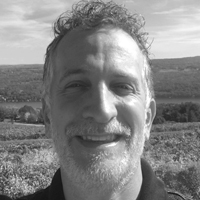
George Guida is author of nine books, most recently the novel Posts from Suburbia (Encircle Publications, 2022) and the collection of poems Zen of Pop (Long Sky Media, 2020). He is at work on Virtue at the Coffee House: Poetry and Community in America.
George Guida
Professor
English Department
New York City College of Technology
Author
Posts from Suburbia (2022)
Zen of Pop: Poems (2020)
New York and Other Lovers: Poems (2020)
Pugilistic: Poems (2015)
The Sleeping Gulf: Poems (2015)
Spectacles of Themselves: Essays in Italian American Popular Culture and Literature (2015)
The Pope Stories (2012)
The Pope Play (2009)
Low Italian (2007)
The Peasant and the Pen: Men, Enterprise and the Recovery of Culture in Italian American Narrative (2003)

